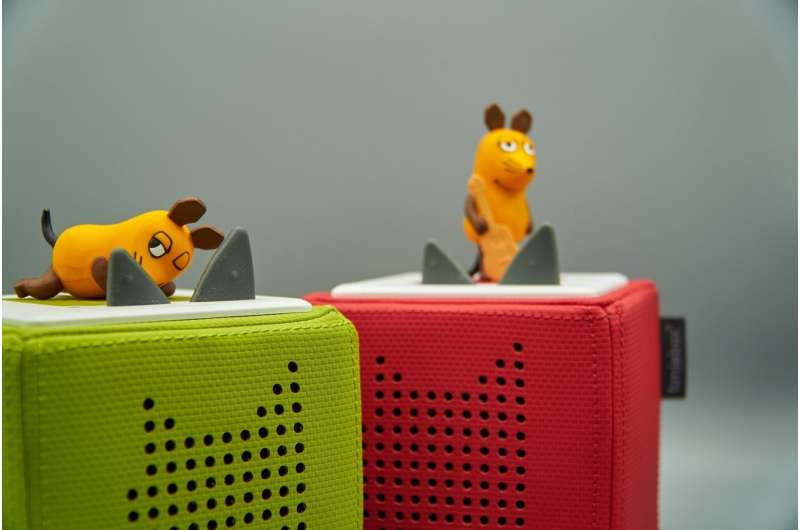This article has been reviewed according to Science X's editorial process and policies. Editors have highlighted the following attributes while ensuring the content's credibility:
fact-checked
reputable news agency
proofread
Pediatrician explains how AI may affect children

Artificial intelligence is rapidly changing the way we work, play and communicate. While artificial intelligence has potential to help solve complex problems, you've likely also heard serious concerns about it—and especially, the ways AI might change the lives of children and teens.
As child health experts at UNICEF have pointed out, kids around the world use AI almost daily. Most interactive toys, games and internet platforms made for children depend on AI technology. Even though AI is advancing faster than anyone expected, most nations have not considered how AI will affect the social and emotional well-being of children.
Much more research is needed, but early studies on AI and kids point to several concerns. Young children may share personal information with AI platforms. Studies show that little ones often chat with smart speakers, telling personal stories and disclosing details that grownups might consider private. Children may assume AI platforms are a lot like people.
One study found that kids between 3 and 6 years old believed that smart speakers had thoughts, feelings and social abilities. Only a few kids assumed the speakers were actually human. This could affect how kids learn to interact with others.
Another study found that young children thought smart speakers were more reliable than people when it came to answering fact-based questions such as, "Who was the first U.S. president to drive a car?"
Adolescents are big fans of generative AI that helps them write essays and reports and create images and video for social sharing (among hundreds of other possible uses). However, only one in four parents whose teens use AI are aware they're doing it, a recent poll shows.
Artificial intelligence can be used to tailor lessons and learning experiences to the individual needs of young children and teens. It can help educators and parents find ways to enrich learning for kids of all abilities at different stages of growth and development. And while it's not a good substitute for live conversation, it can help children improve their language skills and even learn new languages.
It's important that parents talk with their children about artificial intelligence and tailor what they say to the child's age and level of understanding. Here are some ways to do that:
We have a long way to go in realizing the benefits of AI while also protecting our kids from the risks it might pose. The guardrails we need should reflect the tremendous power of artificial intelligence to shape our everyday lives.
Ongoing dialogue should bring families together with schools, health care providers, sports and arts organizations and other community organizations, so we can help kids benefit from AI while minimizing its potential harms.
2024 Tribune Content Agency, LLC.





















